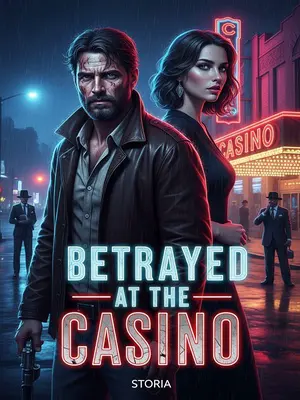Chapter 5: The Great Pretender
The media went wild, calling it a “historic partnership.” Jonah watched from the sidelines, smiling to himself.
He knew when to step back—sometimes, the best move was to let someone else take the spotlight.
He played the long game, betting on favors owed rather than fleeting headlines.
That was the real payday—the money behind the curtain.
They’d seen it all before. The minute the ink was dry, Jonah found himself locked out of the room.
He called, he emailed, he even showed up at their offices. Nothing. The doors were closed, and the money was gone.
He’d tasted victory, only to have it yanked away at the last second. It stung, but he wasn’t about to quit.
Bills piled up, calls from the bank got more urgent, and his team started to worry. Jonah put on a brave face, but the pressure was crushing.
He handed over the keys, wiped the slate clean, and started plotting his comeback. The dream wasn’t dead—just delayed.
He saw another angle—a way back in, if he could just find the right leverage.
It was all about timing—wait for the right moment, then strike.
That was a problem. The rules were clear, and he didn’t have the right paperwork.
He hit a wall, but that never stopped him before.
He sniffed out a deal, always on the lookout for a bargain. The companies were in trouble, but that just made them more attractive.
He stared at the numbers, weighing his options. It was make or break, and he knew it.
He dusted off his best suit, rehearsed his pitch, and marched into the bank. The manager barely looked up from his desk.
The rejection letter was curt—no explanation, just a polite “no.” Jonah crumpled it up and tossed it in the trash.
He paced his apartment, chewing on a pen cap, until the answer hit him. If one door closed, he’d just find another.
It was classic Jonah—find the loophole, exploit it, move fast.
He set up a whiteboard, scribbling names and arrows, mapping out the plan. It was complicated, but he thrived on chaos.
He laughed at the name—bold, a little ridiculous, but impressive enough to pass a quick glance.
He sweet-talked his friends, promising easy money with no risk. They shrugged and signed on, happy to play along.
It was a win-win—at least on paper. Jonah knew how to sell a dream.
He drew up glossy brochures, listed fake board members, and made sure the website looked legit. No one bothered to check the details.
Suddenly, the red tape vanished. Jonah was ushered into private offices, offered coffee, and treated like royalty.
He watched the numbers hit his account, barely able to believe his luck. The hustle had paid off—again.
He signed the papers, shook hands, and celebrated with a steak dinner. For a moment, it felt like he was back on top.
He called in favors, greased a few palms, and made sure his name was on the deed. It was a risky move, but the payoff could be huge.
He ran the numbers, imagining the profits. It was the kind of bet that could make or break him.
He thought about it—just for a second. But the lure of easy money was too strong.
He grinned to himself, already planning the next move. Why build when you can flip?
He saw the whole thing as a game—one he intended to win, on his own terms.
He had no interest in hard hats or blueprints. He wanted the payout, not the paperwork.
He was the dealmaker, not the builder. That was his brand.
He scribbled notes late into the night, seeing patterns where others saw obstacles.
Why settle for a small win when you could go all in?
He loved the thrill of it—the rush of outsmarting the system.
He laughed as he typed up the documents, barely believing how easy it was.
The real ones were untouchable, but Jonah’s knockoffs looked just close enough to fool the untrained eye.
On paper, it was airtight. In reality, it was smoke and mirrors.
He chose Seychelles for a reason—looser laws, fewer questions, and even less oversight than the BVI.
Bearer shares were the holy grail—complete anonymity, total control.
Just hand them over, no questions asked. It was perfect for someone in Jonah’s line of work.
No paperwork, no trail. The shares were as good as cash.
No one checking the books, no one asking hard questions.
He drew up the paperwork himself, making sure every signature was in the right place. It was a web of companies, all leading back to him.
On paper, ADKMIC looked unstoppable—a juggernaut backed by the world’s biggest funds.
It was a masterstroke of misdirection, the kind of trick that would make a Vegas magician jealous.













